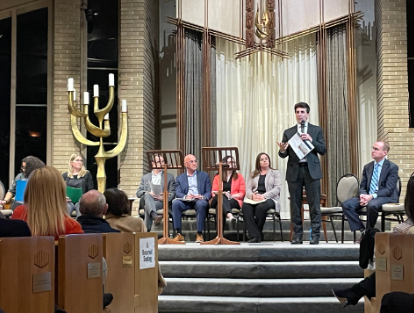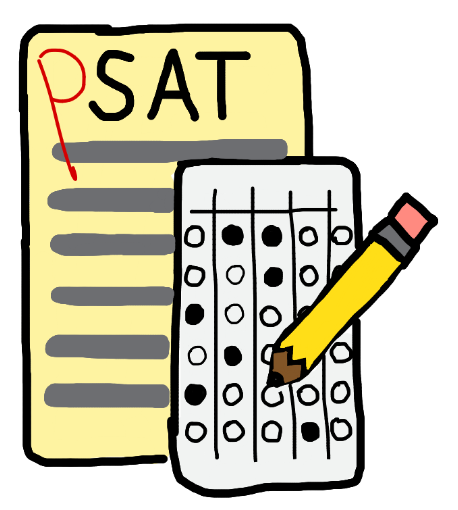Placement of bilingual students in AP world language courses provokes controversy

After only three classes of AP Spanish language and culture, Camille Shuken ’15, who once identified as bilingual, dropped the course.
Approximating that two-thirds of her class seemed entirely bilingual, Shuken was immediately deterred. “It was pretty difficult to participate on a conversational level because I’m not fully bilingual anymore,” Shuken said. “It seemed like an AP English class, but in Spanish.”
According to the College Board, there is only one grading scale for AP World Language exams. Much to the surprise of students entering accelerated language courses, non-native speakers and native speakers are assessed as equals on the exam, and the same rules apply to the classroom.
Like Shuken, Shelby Cataldo ’15 was caught off guard when she was partnered with a bilingual student on her first day of AP Spanish Language and Culture. “I was already nervous to be in this class,” Cataldo said. “And that just made me that much more uneasy. I really don’t want to sound stupid next to the native speakers.”
Non-fluent speakers who are tackling AP World Language classes admit they find the added pressure of working with students who have already mastered the language to be intimidating and stressful at times. However, most students agree they do not take the disparities in levels of experience among students too seriously, as they seek to avoid an underlying sense of competition.
“Being in the classroom should not be a competition or a dogfight,” AP Spanish Language and Culture student Oliver Hickson ’15 said.
French teacher Natalie Clay said she understands why non-fluent speakers may be apprehensive about a mixed learning environment. Nonetheless, she is thrilled to work with bilingual students as she believes they are strong assets to her classes.
“Students may think, ‘I can never reach that level,’ but then they realize they can learn a lot from [bilingual] kids,” Clay said, “not only from a linguistic point of view but also from a cultural point of view.”
Avery Wallace ’15 is one of the students to have already come to share Clay’s realization. Wallace finds collaborating with bilingual classmates to be incredibly helpful as they “create good conversation and help [her] to hear what things are supposed to sound like.”
Although students express a generally positive outlook towards the blend of fluent and non-fluent students, some say they question the ethics of native speakers choosing to pursue a language course to boost their GPA. However, many bilingual students claim they have legitimate motivations for taking the class aside from their grades.
Leah Fuld ’16, an AP French Language and Culture student, debated between taking AP French and AP Spanish, two languages in which she is fluent. However, she ultimately decided upon French because she can speak, read and write Spanish fluently, but can only speak French.
“There’s many complicated rules and exceptions in French grammar. Some of these rules take a lot of practice to register,” Fuld said. “I decided to improve my learning and at the same time boost my GPA.”
While Spanish native Belén Videla ’15 did not need to improve her language skills, she still chose to enroll in AP Spanish Literature and Culture, acknowledging her advantage in the course. Despite the fact that she considers the class “just a regular literature class” for herself, Videla feels that it is fair for her to be graded on the same scale as her non-fluent classmates.
“Of course it is easier for me,” Videla said. “But all of my other classes are in a second language for me and [I’m] graded equally [against other students].”
Though some non-fluent students say they find it frustrating that fluent speakers often succeed with ease, teachers and other students agree that a curve would not be fair, given that overcoming challenges to reach success is an expectation in any AP course.
“Just because you’re a native speaker doesn’t guarantee you a five on the AP Exam,” Clay said. “I would feel uncomfortable treating students differently based on their abilities.”
Rather than concentrating on the skill levels and grades of other students, students like Cataldo feel it is far more important to concentrate on honing one’s individual abilities.
“No one is asking if someone who is irregularly good at math should be graded differently because they’re more experienced or gifted than their classmates,” Cataldo said. “I think we need to look at it as something individual, something that is very much not about how other people do, but about how we do.”

While many students at Staples spent their summers bumming it at Compo beach, Katie Settos was busy hiking the tallest mountain in Northern Europe. Katie...




















































